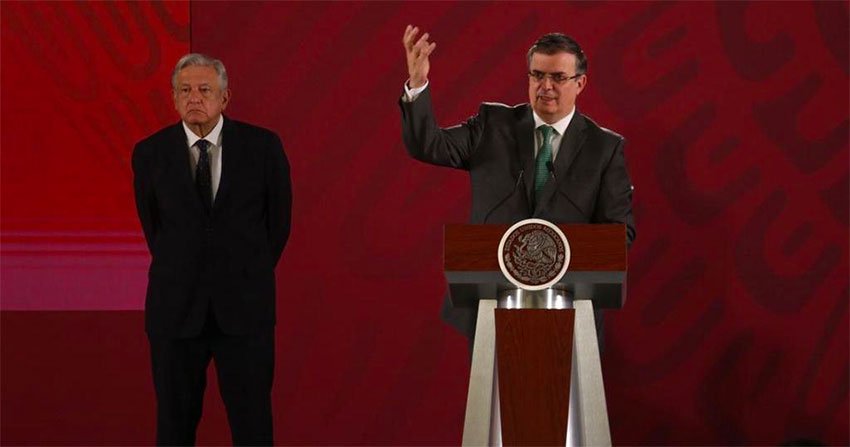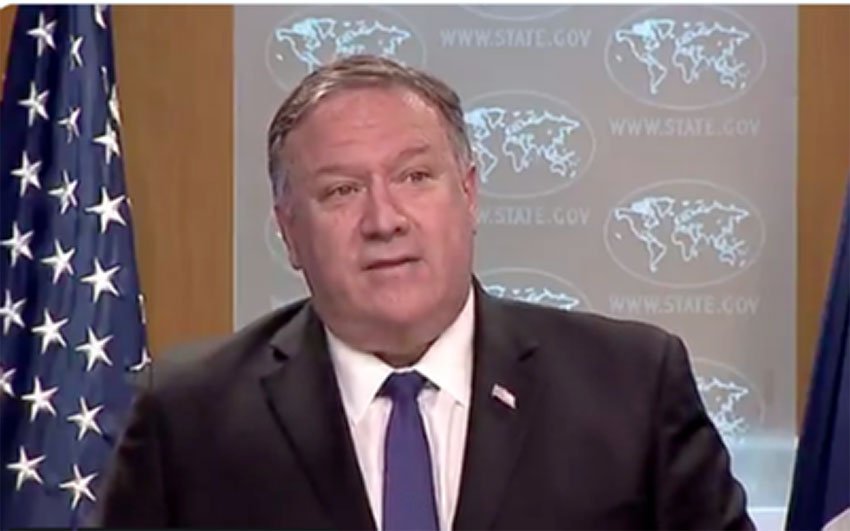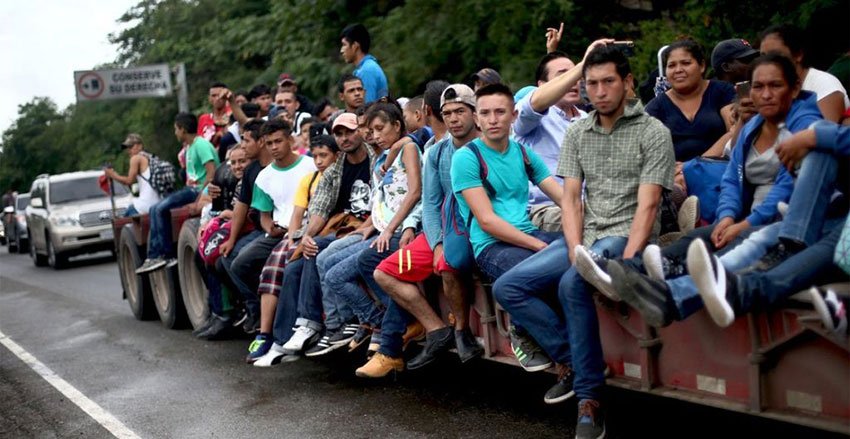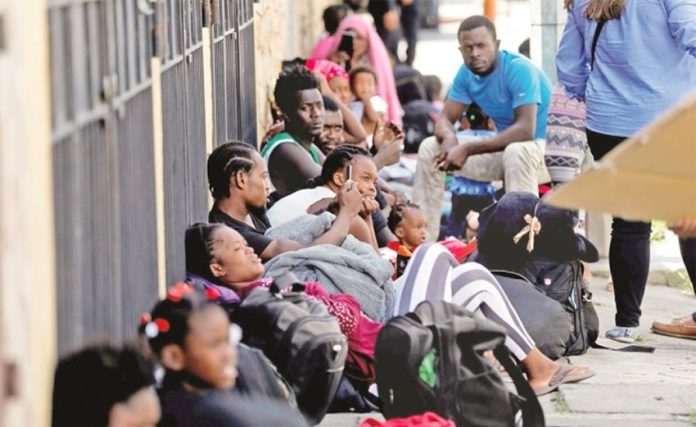Mexico’s efforts to reduce migration through the country to the United States will be evaluated on a daily basis, U.S. Secretary of State Mike Pompeo said yesterday.
Pompeo told a press conference that the effectiveness of the measures to which Mexico committed as part of the agreement reached last week to avoid tariffs on Mexican exports to the United States – including the deployment of 6,000 National Guard troops to the border with Guatemala – will be evaluated by the U.S. government “literally daily.”
He acknowledged that there won’t be an “instantaneous” reduction in migration flows to the United States but stressed that the work to curb the arrival of undocumented immigrants “has already begun.”
The secretary of state said that in a month or 45 days, the governments of the United States and Mexico will have “a good sense of whether we’re able to achieve these outcomes in the way we’re hoping that we can.”
The agreement with Mexico “reflects diplomacy at its finest,” Pompeo said, adding that “the deal continues the Trump administration’s commitment . . . to confront the tide of illegal immigration and many other problems along our southern border, including drug trafficking issues.”

He described Mexico’s commitment to deploy the 6,000 troops to the southern border as “the biggest effort to date that the Mexicans have made and something that we pressed for,” adding that “we’ll work closely with them to make sure that is a successful effort.”
As a result of Mexico’s agreement to an expansion of the Migrant Protection Protocols – the U.S. government policy commonly known as the “Remain in Mexico” plan – Pompeo said that U.S. authorities now have the capacity to return asylum seekers to Mexico at “full throttle.”
That “will make a fundamental difference in the calculus for those deciding to transit Mexico to try to get into the United States,” he said.
However, if the agreement with Mexico doesn’t make “sufficient progress” to reduce illegal immigration into the United States, there is a risk that the tariffs averted by last week’s deal “will go back in place,” Pompeo said.
The secretary of state added that the United States hadn’t offered any additional financial assistance to Mexico or Central American countries to implement measures aimed at delivering the immigration outcomes it is seeking.
“Where we find it in our interest in the Northern Triangle [of Central America] or in Mexico to provide resources that make sense to protect the American people, we’ll do that but in the first instance these nations have the responsibility to take care of these immigration problems in their home country,” Pompeo said.

However, the United States is sending federal agents to Guatemala to complement the deployment of National Guard troops to the southern border, according to the Guatemalan government.
After refuting a report that United States Homeland Security personnel would help Guatemala control the movement of migrants, the Guatemalan Ministry of the Interior said yesterday that it is awaiting the arrival of 98 U.S. agents.
Guatemalan migrants’ advocate Julia González said the United States deployment to northern Guatemala coupled with Mexico’s commitment to send troops to its southern border effectively creates a “double wall” against migrants trying to reach the U.S.
But the archbishop of San Salvador in El Salvador said the deployment of additional security forces won’t ultimately be able to stop people leaving Central America to escape the high levels of poverty and violence.
“The way to stop migration is to solve the problems that we have here,” José Luis Escobar said.
He said it was “sad” that President López Obrador had caved in to pressure from the United States whereas previously he acted “with so much humanity” towards migrants.

López Obrador today described the task of reducing migration in a period of three months as an “interesting challenge.”
The president announced the creation of a special commission headed by Foreign Secretary Marcelo Ebrard to comply with the commitments it has agreed upon.
The aim is to “avoid unfair unilateral measures that affect trade with the country,” López Obrador said, referring to the threat of tariffs renewed yesterday by President Donald Trump.
Ebrard said the deployment of the National Guard will be stepped up today.
Mexico’s agreement to send such a large contingent of the new security force to the border prompted Amnesty International to warn that arresting migrants en masse without considering their individual circumstances is a violation of international law.
The humanitarian organization also said that it has received reports that migrants have been forced to go without food and water for more than eight hours after being detained, warning that the health of babies and children could be placed at particular risk.
AI said that deporting migrants to countries where their lives could be placed at risk is a violation of international law.
Most of the migrants entering Mexico at the southern border come from Honduras, El Salvador and Guatemala, which are among the most violent countries in the world.
Meanwhile, President Trump asserted again today that there is an unrevealed aspect of the deal between Mexico and the United States.
“. . . Biggest part of deal with Mexico has not yet been revealed!” he wrote on Twitter.
Trump made a similar claim yesterday, stating that the there is a “very important part of the immigration and security deal” that “will be revealed in the not too distant future and will need a vote by Mexico’s legislative body!”
However, Foreign Secretary Ebrard said yesterday that there was no part of the deal that has not already been disclosed.
Source: Milenio (sp), El Universal (sp)
